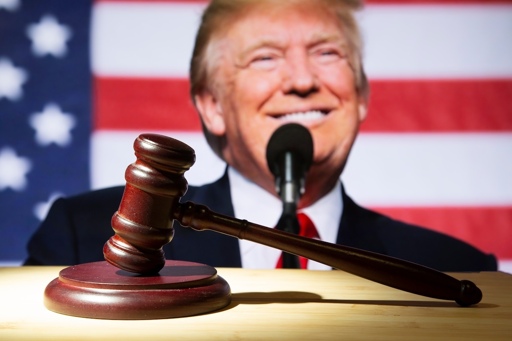Sometimes, judges have moved swiftly and even gotten concrete results. A Tufts University student arrested in the streets of Somerville, Massachusetts, after penning an op-ed on the war in Gaza was ordered released on bond pending appeal of a ruling that said her First Amendment rights had been violated. The Trump Administration complied. More than one federal judge has ruled that Trump has exceeded the terms of the Alien Enemies Act, the eighteenth-century wartime law that the Administration has used to justify many of its deportations to El Salvador. Others have found that many of Trump’s directives to fire government employees and efforts to hollow out administrative agencies have violated federal law and the principle of separation of powers.
At other times, court proceedings have lagged behind the Administration’s actions. In the case of the dismantling of the U.S. Agency for International Development, critical funding was cut off to desperate grantees around the world, leases were canceled, and the name of the agency was removed from its headquarters before any meaningful litigation had occurred. On the hardest issues involving the most disputed questions, lawsuits continue to wind their way toward the country’s apex court—and uncertain resolution. As of late September, more than 400 cases had been filed against the Trump Administration, and counting.
Despite the mixed results, for now a deep reverence for judicial review has reasserted itself across the land. Poll after poll shows that Americans believe that a President should obey the courts, even if many paradoxically also want leaders who will break some eggs to make big changes. But what in fact is the role of courts in a democracy in a deeper sense? In our view, ensuring the survival of democracy in a populist age turns on this crucial question. Having realistic expectations of what judges can do to help and a clear understanding of how their involvement can be counterproductive is essential to minimizing unconstitutional harms and clearing pathways for the political mobilization that can truly heal democracy.
So, the question hangs in the air: How long can judicial resistance last when it is to come from unelected lower court judges, if it comes at all? We believe that the momentary flurry of judicial activity is fool’s gold. The more important question, and one to which we do not yet know the answer, is how Trump’s disputes with judges will play out in the Supreme Court or where it matters the most—with the electorate as a whole. The signs so far certainly aren’t comforting: The justices have used their emergency docket to dissolve a lower court order and permit the mass firing of employees of the Department of Education, without giving any explanation for their decision. They have also restricted the use of universal injunctions, which will make it easier for the justices to discipline lower court judges who get too creative with their remedial powers. And they have been in no hurry to reach final rulings about the legality of Trump’s decision to create DOGE out of whole cloth and allow Elon Musk and a small circle of allies to dismantle large parts of the administrative state without legislative approval. Meanwhile, we don’t know how voters will react if Trump ratchets up his conflict with the judiciary when he loses in court. Part of Trump’s populist strategy is to deny that lower courts can legitimately force him to do anything—when asked, he always says he would obey “the Supreme Court.” A similar sentiment is echoed by Cabinet officials, who typically refuse to say whether a single judge’s order will be obeyed.
Democratic activists must therefore chart a realistic middle ground when it comes to reliance on the courts, one that accounts for what judges can and can’t do and avoids creating more democratic traps for the future. Though law will continue to play a prominent role, we contend that it can protect democracy only up to a certain point, and only in conjunction with political activism and elections. For history shows that a populist leader is likely to escalate conflict with the courts rather than back down, and that judges alone cannot save democracy.
judges alone cannot save democracy.
Ultimately, if a people doesn’t want to be ruled (or rule) democratically, the courts cannot stand in the way. They can only delay the power grab until the people decide that’s what they really really like.
I think we ended up with democracy because it works, not because it’s morally superior. We can currently see in America (or Russia) that autocracy does not work, and current polling indicates more and more people are seeing it that way, too. It looks like only a coup will save this regime from implosion, and I doubt they have the numbers to pull it off. Unpopular institutions don’t usually succeed in a coup.
Right now, though, the problem seems to be that there isn’t a good alternative to the autocrats. It feels like every election is in essence a rejection of the incumbent because the situation is constantly deteriorating. Until someone comes up with good ways to improve the lives of the people, there is not going to be stability.
I don’t like the “both sides” rhetoric, because we can clearly see right now that both sides are not the same. But in that specific instance, looking at their proposed solutions to socio-economic issues of the day, both parties fail to have a good answer because they ask the wrong people for advice.
I don’t think any activists think the court can save them. The utmost has to be done at all levels, the people, judiciary, states, minority congress and scotus. Unfortunately an out of control executive with a collaborative party running the congress and scotus means all the stops have to be pulled out.



